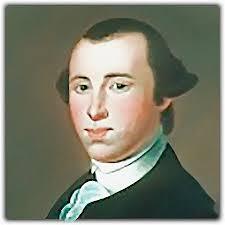Thomas Heyward Jr.

Heyward was among the earliest in South Carolina who resisted the
oppressive measures of the Home Government, and from the passage of the
Stamp Act, to the battle of Lexington, he promoted the patriot cause,
ever repudiating the degrading terms of conciliation – absolute
submission – which the British Government demanded. The openness and
manly frankness, with which he espoused the patriot cause, made him a
leader in the revolutionary movements in that Province. He was placed in
the first General Assembly that organized after the abdication of the
colonial governor, and he was appointed a member of the first “Committee
of Safety” there.At age 29, he was elected to fill the vacancy of John Rutledge as
Delegate to the Second Continental Congress in early 1776, in time to
enter upon the lengthy discussion of American independence. He warmly
supported Richard Henry Lee’s motion for absolution from British rule,
and, much to his royalist father’s displeasure, Thomas joyfully voted
for independence on July 4, and signed the famous parchment along with
the other South Carolina delegates on August 2, a few days after his
30th birthday. His father admonished him, and said that the British
likely would hang him for this act. Happily for the family relationship,
Heyward blood was thicker than politics, and the two men reconciled and
were close as father-son before the father’s death the next year.
Happy to reblog this today, and not just because we’re related and he’s my ancestor, but because he used his “manly frankness” to change history.
Anna



